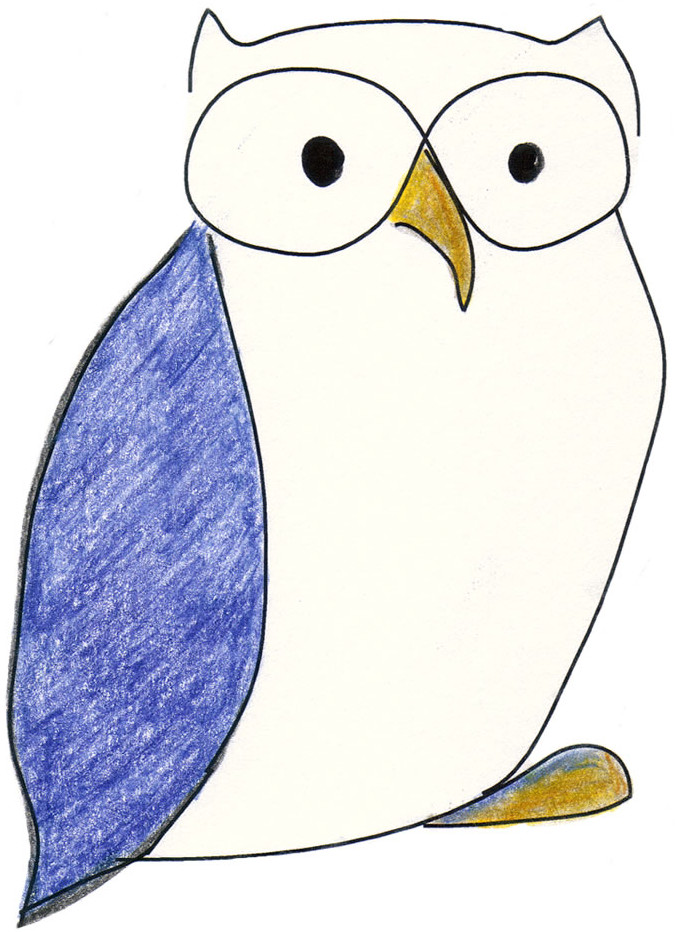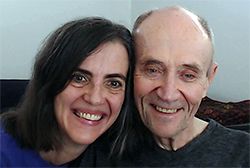Just One Look Forum Archives
Recovery and Rehabilitation
I've heard John talk about at least one bipolar sufferer finding peace after looking. As someone with vacillating brain chemicals, at times I wish that I could hear from someone who has gone through this. If we assume that the moving mood states are caused by genetics and not a response to fear then one might wonder how the looking has helped people when these same people received no positive results from even EST. OK, perhaps this is not entirely true (the 100% genetic) and the removal of the fear pattern is directly helpful. Maybe the condition is a response to fear somewhat and therefore becomes a lot more manageable.
What I'm noticing: Without the fear I can actually see and notice the mood fluctuations. This has got to be a move in the right direction. Mood swings now don't trigger intense mind reactions that in-turn set up new rabbit holes to find one's self climbing out of. The temporary nature of each experience is either an immediate understanding or ends up being within a short period of time. No multi-day head trips anymore. Prior to 'the looking', mood swings (especially highs) would usually end up with me saying or doing something that triggered shame, loathing, anxiety, etc, mentally magnifying other's responses and inducing and living in my own artificial world for a period of time. Since I was at stake each new episode added shrapnel to the theater of my life that I had to defend and/or perform damage control on.
The light is shining on all of this and it's a good thing. But now I see things I never saw before.....perhaps that's a big part of the recovery. The light does not discrimiate in what it shines upon.
So, I can see that looking does something about this. It also stirs it up because you can start to see how you've been kidding yourself and others. But if this is a chemical thing....Like I said, I'd love to hear a few words from some people that have gone through this. My mind could use some external dialog to go along with what's happening to me.
The post from the man I spoke about (The looking has been quite a trip) can be found in our ebook Lookers Tell their Stories.
Yes yes yes. Thank you. My takeaway is to look more, which I'm doing anyway so I'll keep at it. Helpful stuff. In your book you have a line that reads "see if you can't see yourself" That sticks with me quite a bit. Trying not to see what you are is a powerful suggestion. I like the 'always touching your face' and the 'white paper that's always there' quotes from some of your videos. The spontaneity and honesty that comes out of your discussions is so cool.
Counted my breath while in the dentist chair today. Interesting experience.
It's so odd, I've been suffering for 48 years ever since I was 5 but I can't seem to shed a single tear about it anymore. Profound indeed. Many times in the past certain things would remind me of my entire life being one long continual painful mess and it would just break me down. Now the general feeling and thought is that it just isn't true. So even when I habitually start to have a pity party, no one shows up in essence. So strange how the cycles stop.
Bradley, I would agree that while there is a contribution of genetics, it is clearly below 100%. This is a complex disease with many small contributions from a high number of genes. The current state of knowledge is summarized in this article: https://www.dovepress.com/genetics-o...d-article-TACG. I am just mentioning this because I think it can be stressful to believe of one's genetics as a sort of cage. From a science point of view, this is certainly not the case.
As a therapist, I'm very interested in whether the act of looking ameliorates more serious psychiatric diseases. My own depression and anxiety were serious enough and the looking was nearly 100% effective with anxiety and about 80% effective with depression (so far). This is far higher than the 30-40% effectiveness rates of drugs. Posts like the above suggest that there is hope that this is true. I work with kids and have had seriously depressed kids look at themselves, as well as high functioning autistic children.....many of the kids I work with have a syndrome of learning, developmental, and emotional disorders. So far I haven't seen the long term effects of the looking in their lives, and there's the problem.....the looking can take quite awhile to show the effects and this population is not the most self aware, reflective group.
Good stuff, though and we must continue to spread the word. I believe in it enough to tell others about it, including many of the kids I work with.
In business, some of us have learned to appreciate the 'new eyes' that recently added employees bring to teams because we no longer possess the wide eyes of a newcomer. I believe that the task of promoting looking suffers from this as well as those who have looked eventually cannot relate all that well to the old world of insanity. The message is simple but it draws suspicion like it's another cult and you will sell your soul if you're not careful. Sharing this stuff is challenging and as much as I share the vision of more and more people looking, I also feel that we have a lot of work to do. An organization that has nothing to gain by sharing something goes against the rules of human interaction at the group level. Can you imagine seeing a news story about looking? Can you think of reasons why people would reject looking?
Imagine if everyone on the planet looked at themselves this week. Not sure if we would survive the next 3 months. Just a thought. Imagine that if world leaders learned that either everyone does the looking or we perish, how would they go about it? Is the inquiry really always going to be restricted to those who have suffered and searched? Must pain precede this?
No, pain need not precede this. Some people have a natural curiosity to try new things - for example children. These will also try the looking if properly encouraged. This is why I think it to be important to bring it to children.
One other situation to suggest the looking is when people wonder why I am not in the hunting/resignation/salvation/self-agrandation etc. mode anymore. Then I might tell how they can have that as well.
I like that, 'hunting/resignation/salvation/self-aggrandization'. HRSS.
Yes, I think children are wide open. I do the looking with kids I work with who have learning disabilities.
John in a recent video I downloaded you asked for suggestions on how to up scale this thing. I've been thinking about the symbols you use to illustrate the problem and its solution: The fear of life as the disease, and the looking as its cure, its medicine. Similar to an antibiotic it should work even without the subject's knowledge of taking the medicine, or even of the disease.
I believe the answer lies in those symbols. I'm sure you already considered how other new medicine and treatment gain attention, confirmation and eventually makes it to the public. I thought I'd bring it up since I haven't really heard anything about getting some basic clinical research done on this. It seems very straight forward and probably cheap to do. Have participants do questionnaires and interviews, do the looking, then do follow-ups over three to five years, and do it double blind. If the fear and looking phenomena behaves like illness and treatment then it should be clearly articulated in the data. Personally, in light of what can be gathered from these forums both explicitly and reading between the lines, I think such a study could potentially yield some eye-opening results. I just don't have a clue on how to persuade an institution somewhere to do this.
Great idea. We would need an indivudual who does psychiatric or psychological research, who is familiar with requesting money for research, and would be willing to file a grant proposal.
Just realized a proposal should include an experiment to seek synergies between looking and focused attention practice as well. From the anecdotal evidence we already have it seems this practice plays a key role during the hypothetical recovery period (which we also might gain insight to).
Control groups could do nothing, or only do the looking once, or only do focused attention practice. Then one group that does the looking once and the attention exercise routinely.. Maybe one group can do the looking repeatedly aaaaand maybe I'm getting ahead of myself a little bit here, hehe 
I don't know about you guys but I have confidence in the looking to direct our species toward an unpredictable yet sane and life loving future. So I get a little excited!
I wonder whether it is practical to have control groups that are not doing the looking. These folks would try it anyhow, I guess - they would get curious, and the looking is really simple. The control group should not even be told about the experiment. However, I doubt this conforms to the ethical guidelines of doing studies.
Paul Freedman, Jonathan Goldberg and Jaak Reichmann who co-authored The Radical Act of Inward Looking (2013) conclude on page 23:
'Given the large numbers of individuals who have reported significant benefit from engaging in the act of inward looking, we are planning clinical research aimed at measuring outcomes relative to various other interventions.' Here is the report as e-book, it's a good read: The Radical Act of Inward Looking
What about them? Freedman, Goldberg and Reichmann? They seemed keen in 2013 
Until such time that a 'recognized' entity decides to invest time in this, we could perform a much less stringent survey of our own if this hasn't already happened. Having data, even if it isn't laboratory quality, can add beef to a proposal and help would be researchers over the proverbial fence. This data could also help our group improve the way we help others through recovery and other aspects of the looking metamorphosis.
We heard from Paul a couple of weeks ago that a journal named 'Undivided: The online journal of non-duality and psychology' will probably pick the paper up, but this seems to me to be unlikely since the looking actually invalidates the foundation of the standard model of non-dual spirituality by causing the mind to find its satisfaction in the uncontaminated content of life itself.
But there is much that can be done to bring this to the people themselves, bypassing the filters of existing approaches whether they be standard psychotherapeutic methods or the seeking after rescue from human life by supernatural means.
We have some good ideas as to how to proceed now, so stay tuned, and continue with the good work you are all doing here. I can't adequately describe the immense value your conversations here have been to Carla and me as we work to develop the methodology and means to bring this to a world of human beings who so desperately need it. Stay tuned.

